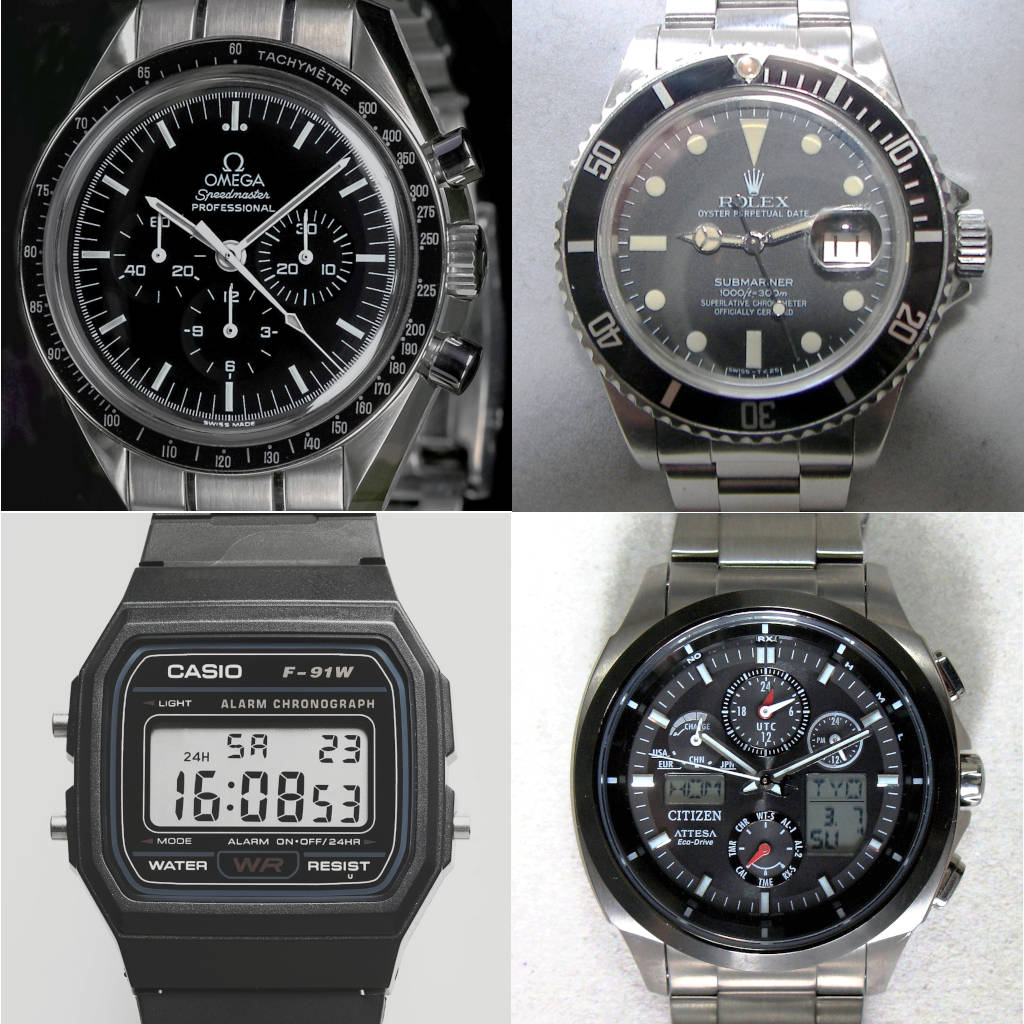Most people wear watches without thinking too much about how accurate they are. Yet, behind the ticking hands or glowing digits, there’s a complex story of how each type of watch keeps time—and how well it does it. In this article, we’ll break down what accuracy means in watches, how it’s measured, and how different types of watches compare when it comes to precision.
What Is Watch Accuracy?
Watch accuracy refers to how closely a watch keeps time compared to the official time standard. If a watch gains or loses a few seconds each day, that’s called deviation. The smaller the deviation, the more accurate the watch is.
Accuracy is usually measured in seconds per day. Some types of watches can also be measured in seconds per month or even seconds per year, depending on their technology.
How Is Accuracy Measured?
To measure accuracy, watchmakers compare a watch to a known reference, such as an atomic clock. They monitor how many seconds it gains or loses over a set period. Official testing organizations, like COSC (Contrôle Officiel Suisse des Chronomètres), test watches in various positions and temperatures to assess performance under real-world conditions.
Now, let’s compare different types of watches and see how they perform.
Mechanical Watches
Mechanical watches are powered by springs, gears, and balance wheels. They don’t use batteries or electronics. While they have charm and craftsmanship on their side, they are the least accurate of all watch types.
Typical Accuracy:
- Standard mechanical watches: ±20 to ±40 seconds per day
- High-end mechanical chronometers (COSC-certified): ±4 to ±6 seconds per day
What Affects Accuracy:
- Position (dial up, crown down, etc.)
- Temperature changes
- Magnetism
- Shock and vibration
- Time since last service
Despite these limitations, many enthusiasts prefer mechanical watches for their character and mechanical beauty. They’re not just about timekeeping—they’re about tradition and engineering.
Quartz Watches
Quartz watches use a tiny crystal that vibrates at a precise frequency when powered by a battery. These vibrations are counted by a circuit that translates them into time.
Typical Accuracy:
- Standard quartz watches: ±15 seconds per month
- High-accuracy quartz (HAQ): ±5 to ±10 seconds per year
Why So Accurate:
Quartz crystals vibrate at 32,768 times per second, creating a very stable time base. Most daily wear quartz watches are far more accurate than mechanical ones—and they don’t require winding or much maintenance.
Some luxury brands (like Grand Seiko or Citizen) make high-accuracy quartz models with temperature compensation and hand-assembled movements.
Automatic Watches
Automatic watches are actually mechanical. The difference is in how they’re powered. Instead of manual winding, the rotor inside an automatic watch spins with wrist movement and winds the mainspring.
Typical Accuracy:
- Same as mechanical: ±20 to ±40 seconds per day
- Chronometer-grade automatic: ±4 to ±6 seconds per day
Automatic watches are popular for daily wear, offering a balance between tradition and convenience. However, they are still less accurate than quartz.
Atomic Watches
These watches don’t keep time by themselves. Instead, they receive radio signals from an atomic clock, usually once per night. The atomic clocks they connect to are accurate to within one second every 100 million years.
Typical Accuracy:
- Virtually zero deviation, as long as signal reception is stable
Atomic watches are ideal if you want precise time without thinking about setting or adjusting your watch. Some models also automatically adjust for daylight saving time and leap seconds.
However, they depend on location. In remote or shielded areas, the signal may not be received reliably.
GPS and Radio-Controlled Watches
GPS watches and radio-controlled watches are modern solutions that receive time data from satellites or broadcast stations.
Typical Accuracy:
- Syncs to atomic time: no meaningful daily deviation
- Without signal: behaves like a quartz watch (±15 seconds/month)
These watches are perfect for travelers or professionals who want accuracy across time zones. They often feature automatic time zone adjustments and calendar correction.
Smartwatches
Smartwatches use internet or Bluetooth synchronization. As long as they’re paired with a phone or Wi-Fi, they will match network time.
Typical Accuracy:
- Perfect as long as synced
- ±1–2 seconds/day when disconnected
Accuracy isn’t a concern here unless the watch is completely offline for long periods. For most users, smartwatches are "set-and-forget" when it comes to timekeeping.
Comparison Chart
| Watch Type | Typical Accuracy |
|---|---|
| Mechanical | ±20 to ±40 seconds/day |
| COSC Mechanical | ±4 to ±6 seconds/day |
| Quartz | ±15 seconds/month |
| HAQ Quartz | ±5 to ±10 seconds/year |
| Atomic | ±1 second in 100 million years |
| GPS/Radio-Controlled | No deviation when synced |
| Smartwatch | Accurate when synced |
Final Thoughts
If accuracy is your top priority, quartz, GPS, or atomic watches are the best options. They’re incredibly precise and require minimal maintenance. But if you love tradition, engineering, or craftsmanship, a well-regulated mechanical or automatic watch might still be the right choice—even if you have to reset it once a week.
Remember, the “best” watch isn’t always the most accurate one. It’s the one that fits your lifestyle, your taste, and your expectations.
